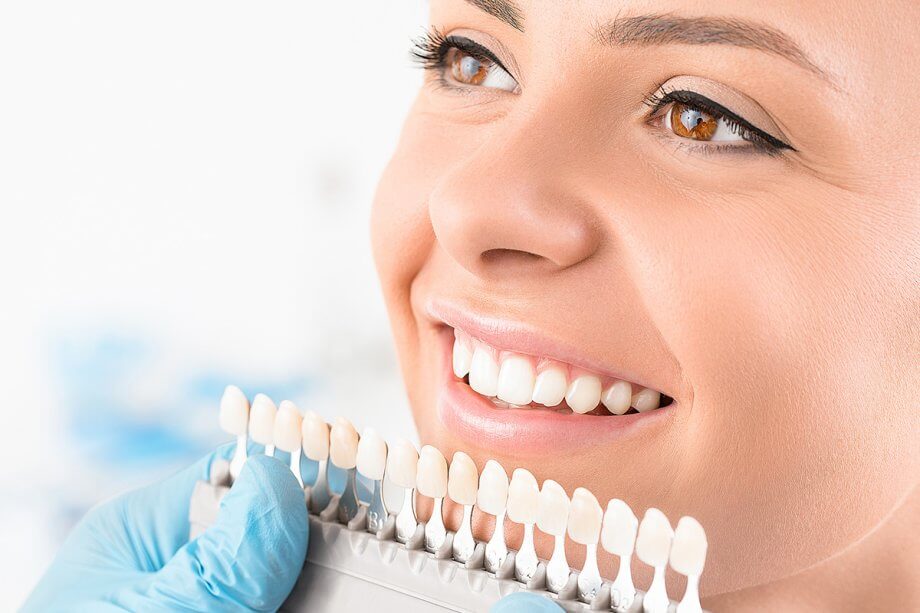Tooth sensitivity is caused when the active bleaching ingredient, such as carbamide peroxide or hydrogen peroxide, reaches the nerves of the tooth.
The level of sensitivity varies based on the individual and several other factors like the strength of the product and whether the patient is new to teeth whitening procedures. Other reasons you may experience sensitivity after teeth whitening include:
- The tray exerts unnecessary force.
- The whitening gel makes the enamel more permeable and exposes the soft layer of your gums.
- The bleaching agent irritates the gums.
Preventive Measures to Minimize Sensitivity
Prior to your teeth whitening procedure, there are some preventive measures to take to reduce sensitivity.
- 10 days prior to the procedure, start using desensitizing toothpaste. This will help block signals of pain from the surface to the tooth's inner nerve. To achieve maximum effectiveness, leave the toothpaste on for three to five minutes before rinsing with water.
- It’s important to apply a desensitizing gel before your treatment. There is a recommended amount of time to leave the gel on your teeth before rinsing with water.
- Take over-the-counter pain medication to minimize discomfort and sensitivity. The dentist may ask for you to continue this medication after teeth whitening treatment to manage sensitivity.
What To Do for Sensitivity After Teeth Whitening
Sensitivity is a common side effect of teeth whitening. While this does not last long in many patients, it does depend on the individual and their unique situation. Here are a few methods to help minimize sensitivity after treatment.
- Avoid extremely hot, cold, and acidic foods and drinks. This is recommended before and after treatment for at least a week.
- When drinking, try sipping through a straw to avoid additional discomfort. This is because the straw goes past your teeth and helps avoid any liquid touching the gums and teeth.
- Use desensitizing toothpaste and gels to help block pain signals from the teeth to the nerves.
- Gently brush your teeth and gums with a soft-bristled toothbrush and rinse with warm water. Also, use products with fluoride to help block pain signals.
- Get teeth whitening treatments more often. While this will not necessarily help with aftercare during the first treatment, it will help with future treatments.
Contact Bella Dental for Professional-Grade Teeth Whitening
Generic, store-bought trays and gels that do not fit properly in your mouth cause the bleaching ingredient to soak into your gum. This results in increased sensitivity before, during, and after treatment.
Bella Dental offers both in-office bleaching and at-home bleaching. In-office treatments require one visit where the dentist places a rubber shield of protective gels over your gums to protect the soft tissue and reduce sensitivity. The bleaching agent is added to the teeth, and a specialized light enhances the agent.
Our at-home treatment requires the dentist to get an impression of your teeth to provide a customized mouth guard. This mouth guard will hold the whitening gel against the teeth and is worn for a designated amount of time provided by the dentist.
Each treatment is carefully monitored to ensure safety and comfort. If you would like to learn more about our teeth whitening services, contact our office at one of our three New Jersey locations to schedule an appointment.

